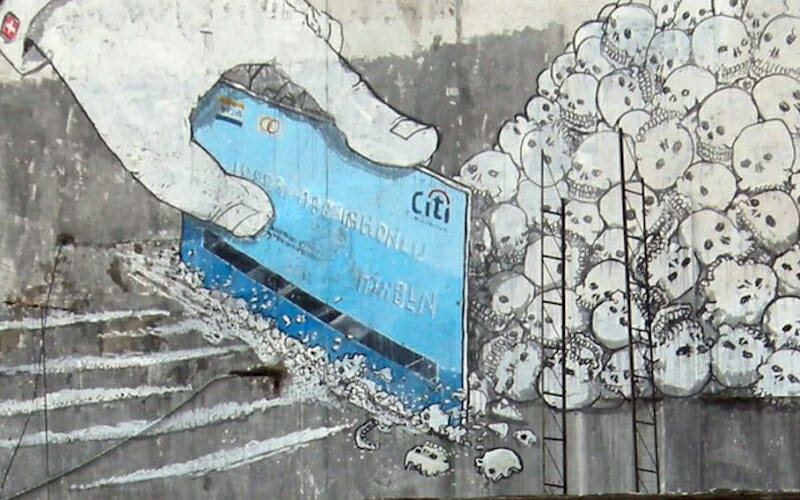
Latin American Narco-Politics Isn’t Going Away
Successful illicit narcotics trafficking networks in source and transit from Latin American and Caribbean countries involve significant political factors. Latin America and the Caribbean are infamously rife with narco trafficking activities. Yet narco trafficking is only a tip of a highly multi-layered, multi-player metaphorical iceberg.
Professor Marian Leerbuger of the University of Maryland obverses that, “human insecurity in the region creates an environment in which terrorism and other forms of violence can thrive.” Latin America and the Caribbean have specifically been a region subject to foreign influence and internal conflict dating as far back to initial European conquest, to Operation Condor, School of the Americas – Fort Gullick era, banana republic civil wars, the popularized Colombian drug cartel wars of the 1970s, 80s and 90s, Plan Colombia, the Pink Tide, the retraction of the Pink Tide, and beyond.
Such marbling of perilous affairs has produced a destabilization status quo. This reality is well known to the involved countries’ political spectrums. Political factors that contribute and facilitate successful illicit narcotics trafficking networks in the region include destabilized histories and high-profile conflicts of interest.
Destabilization
Latin American and the Caribbean’s history of political destabilization has contributed and facilitated successful illicit narcotics trafficking networks for decades. Extreme socioeconomic and political divides amid populations engender centuries-long natural divisions, rivalries and struggles. Western public and private interests in the region during the 20th century regarding multiple industries from mining policies, oil deals, to Cold War anti-communism agendas spawned a further politically troubled “back yard.” Trade routes connected to other troubled regions – such as Africa – have added to the Western Hemispheres’ already fruitful transnational organized crime (TCO) problem. Add the highly violent and lucrative drug trade, and the losses – and gains – enlarge.
Innocents have become involved. Illegal immigration is sometimes aided by drug trafficking organizations (DTOs), whose violence many innocents are ironically attempting to escape. Involving DTOs profit from many of these civilians are trying to achieve better living standards in the United States. The United Nations Office of Drugs and Crime (UNODC) reports said smuggling profits are approximately $6.6 billion annually. Not only are many immigrants seeking better jobs, but safety embodies a high demand commodity. This has especially become the case with recent and at times on going armed conflicts among TCOs and local gangs involved in narco trafficking, as witnessed in the Northern Triangle and northern & central South America.
Liza Ten Velde from the Transnational Institute’s “Drugs and Democracy” project emphasizes that such environments of conflict “have left behind a legacy of violence – with an extensive arsenal of weaponry being a very important part of this inheritance.” Certain Latin American and Caribbean governments have allegedly attempted to turn back this trend. While national and international drug enforcement efforts may succeed in certain areas by going after DTOs, politicians’ struggle with high-profile political conflicts of interests – and loss of interest – and this game also must be addressed.
Conflicts of Interest
High-profile political conflicts of interest can contribute and facilitate successful illicit narco trafficking networks through inner system corruption and compromises for strategic rationales. Nearly all Latin American and Caribbean countries are involved and influenced in some way by the US-led Drug War. Mexico is at its head. Mexico has gone about drug enforcement in multiple ways in recent history. According to Peter Chalk from the Rand Corporation Air Force Project, most administrations have let the DTOs fight among themselves, leaving more civilian and non-civilian bloodshed aside than not. Death statistics are grim, but relatively lower than full blown state vs DTO wars.
Harvard-educated President Felipe Calderon (2006-2012) changed the game by declaring war on the DTOs. DTOs suffered. So did the murder rates. Calderon came under heavy critical fire, even opposition at times by claiming his administrational stratagem as more of a criminal than the criminals they allegedly fought. Thus Calderon suffered weakening approval ratings, yet efficient drug enforcement legacies. Calderon overall compromised where many politicians had not. Many Mexican voters and other stake holders ultimately took an alternative strategic choice by electing a successor from the political party that had enjoyed long governance before Calderon – a party known to prefer leaving DTOs comparatively alone in exchange for relative peace.
Nevertheless, successor President Enrique Pena Nieto’s administration is also experiencing hard times. It struggles to enjoy the best of both worlds by getting local and international credit for turning in high profile criminals such as Joaquin “El Chapo” Guzman, while trying to reduce the violence rates necessary to do so. Overall, the internal political crisis has thus re-birthed. It emphasizes the frequent high-profile political conflicts of interest’s tight rope that in their own internal destabilization, also opens doors of opportunity that contribute and facilitate external influence.
Impact
Political factors – principally destabilized histories and high-profile conflicts of interest – indubitably contribute to and facilitate successful illicit narco trafficking networks in source and transit in Latin American and Caribbean countries. Chalk analyzes that, “taken together, these outcomes can have a highly detrimental impact on popular support for the government.”
Therefore, learning from the numerous case studies available regarding the drug enforcement theme significantly helps combat it.
This article was originally posted in Pulsamérica.
